Kumanjayi Walker inquest: Rolfe’s ‘smashing’ text to mum described ‘positive experience’, sergeant says
The sergeant in charge of Zach Rolfe’s former elite Immediate Response Team said ‘smashing up’ an Indigenous community was really all about ‘hard work’. Read the latest from the inquest.
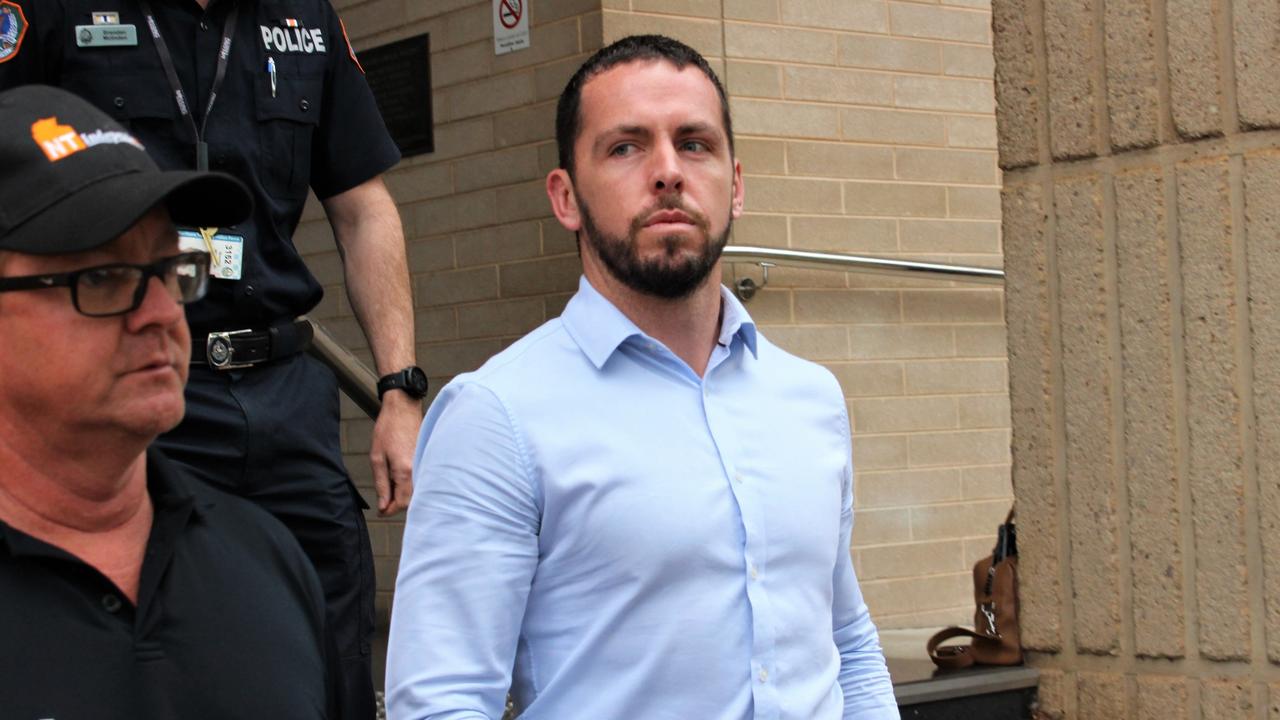
Northern Territory
Don't miss out on the headlines from Northern Territory. Followed categories will be added to My News.
When Zach Rolfe told his mum he “smashed up” an Indigenous community months before he shot and killed Kumanjayi Walker he was describing “a positive experience”, according to one of his former colleagues.
NT Police sergeant Lee Bauwens concluded his evidence in the Alice Springs Local Court on Friday at an inquest into the 19-year-old Warlpiri-Luritja man’s death in Yuendumu in November 2019.
Mr Rolfe, a former NT Police constable who was attempting to arrest Mr Walker at the time, was acquitted on all charges relating to the shooting by a Supreme Court jury in 2022.
Counsel assisting Patrick Coleridge read from a text message Mr Rolfe sent Deborah Rolfe in March 2019 saying it was “good to be in Borroloola, this is the community we smashed up last time”.
“They’re behaving nicely now,” he wrote.
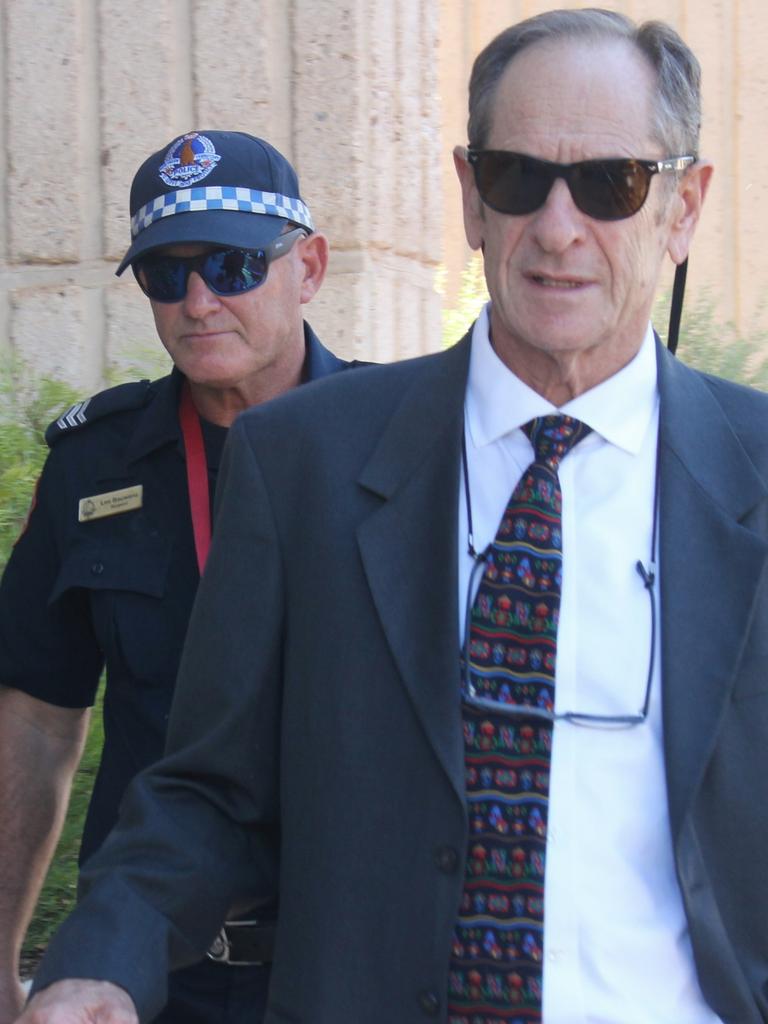
Mr Coleridge asked Sergeant Bauwens if it would concern him to learn a member of his elite Immediate Response Team “was communicating to a member of the public in those terms about the work of the IRT”.
But Sergeant Bauwens said “smashing” did “not mean an act of violence”.
“You’ve got to look at the term ‘smashing’ and I think I can refer to the job we went to,” he said.
“We arrived there at one o’clock and we didn’t leave until four in the morning and we were relentless in our patrols and our surveillance and our inquiry into community so that would be the context he was using as ‘smashing the community’.
“Smashing is a term which is to be used as the hard work that you put into that thing, for instance if you smash out 50 push ups, that’s the context he used that I’m sure.”
Sergeant Bauwens said the operation in Borroloola was actually “a positive experience” and not “some overt type of policing where shows of force are used to get the community to behave”.
“And I can show you a glowing report from the OIC that demonstrates the community engagement and involvement from our team with his officers and that particular job,” he said.
In another text message sent the same day, Mr Rolfe said he was back out at the eastern Top End community off the Gulf of Carpentaria “because they’re rioting”.
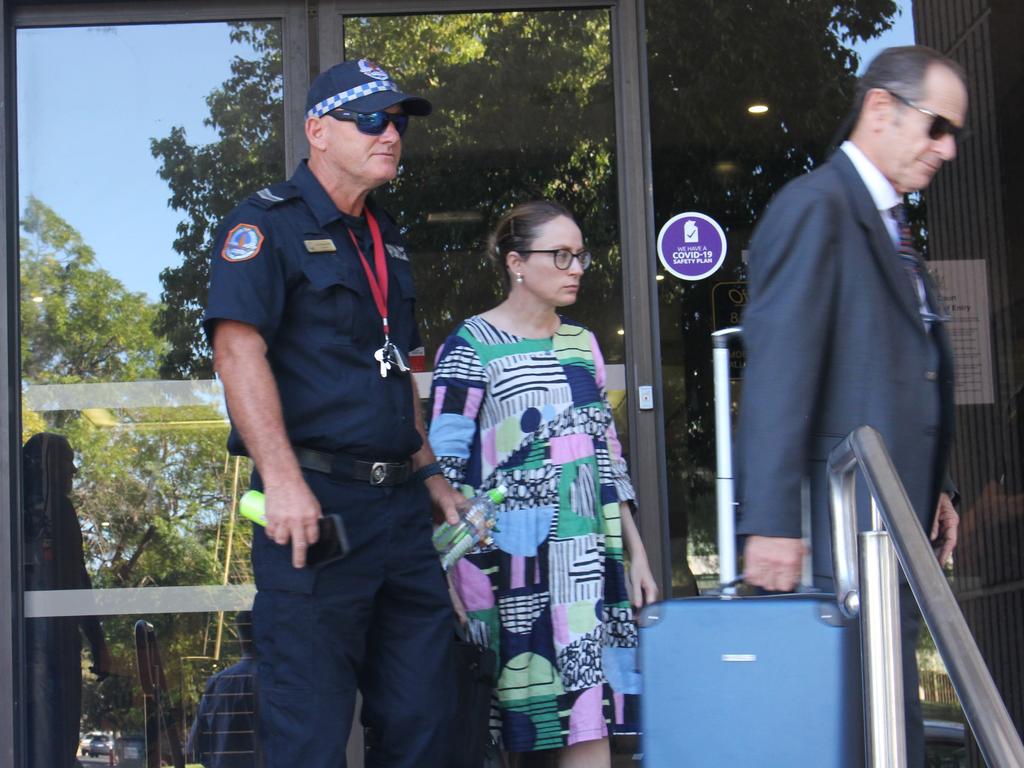
“But we came up last time they did this and smashed the whole community, so this time, as soon as we arrived they started behaving,” he wrote.
“That doesn’t sound at all like he’s describing community engagement, it sounds like he’s describing overt acts of policing which resulted in compliance by the community,” Mr Coleridge said.
But Sergeant Bauwens said in context “smashing means they achieved their goals, they went there, upheld the law as they were required to do”.
“If you go in there and you (do) high presence policing, doing your job and you’re enforcing the law, it could be perceived as ‘Yeah, we smashed the community’, as in got them to stop rioting, I guess, if that means anything.”
The inquest resumes on Monday when Mr Rolfe will give evidence for the first time since a failed bid to avoid answering questions that might get him in trouble with his former employer and his subsequent dismissal from the force.
Tactical police unit vetting ‘woefully wrong’: Kumanjayi Walker family lawyer
The former head of NT Police’s elite Central Australian tactical response unit has rejected suggestions his oversight in the lead up to a fatal police shooting was “woefully inadequate”.
The officer in charge of the now disbanded, Alice Springs based Immediate Response Team, Sergeant Lee Bauwens, took the stand for two days of evidence at an inquest into the death of Kumanjayi Walker on Thursday.
Sergeant Bauwens is the penultimate witness in the long-running inquest – after former constable Zachary Rolfe fatally shot the 19-year-old Warlpiri-Luritja man during a botched arrest in Yuendumu in 2019.
Mr Rolfe was acquitted on all charges relating to the shooting by a Supreme Court jury in 2022.
Under questioning from counsel for members of Mr Walker’s family, Andrew Boe, Sergeant Bauwens said he looked favourably on officers with military experience when recruiting for the IRT.
The court previously heard Mr Rolfe was “unlikely” to have ever been accepted into the force if he had been honest about prior brushes with the law and military discipline, including pleading guilty in a military court to theft.
But Sergeant Bauwens said it “may be going into it a bit too far” to look into any negatives on IRT applicants’ military service records.
“The only thing I’m concerned about in their military history is what they actually did and if it was beneficial to the section,” he said.
“If there was something negative that would impact on their position, they probably would tell me.
“Like if they were suffering from something that would affect their position within the section, they wouldn’t be applying for the section to start with.”
Mr Boe said he would be “suggesting to the Coroner that it would be appropriate to make findings that your oversight of the IRT was woefully inadequate in filtering out members who should not be deployed”.
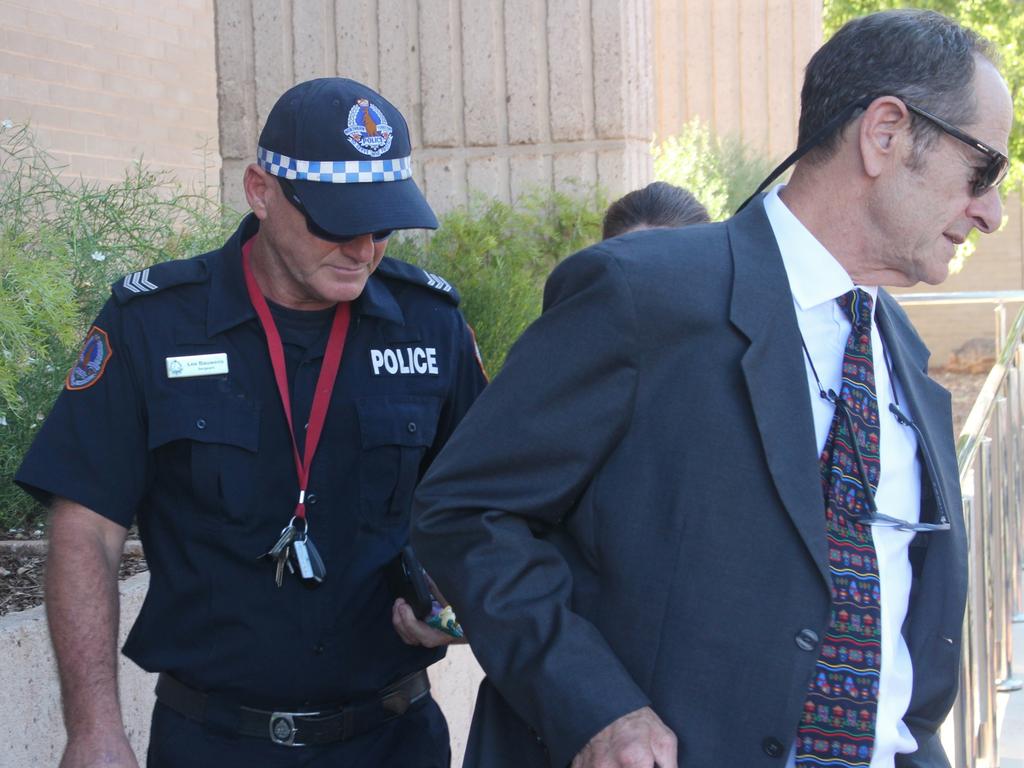
“I’m suggesting to you that, moving forward, only looking at the physical capacity through military experience as a positive criteria for enlistment is woefully wrong and inappropriate for a member to be a part of an elite team like an IRT,” he said.
“What do you say to that suggestion?”
Sergeant Bauwens replied: “No, I disagree.”
Sergeant Bauwens also said despite “a high proportion of targets of the IRT” being Aboriginal people living in communities such as Yuendumu, applicants’ “cross-cultural capacity” was not part of the team’s selection criteria.
“You don’t get to apply for an IRT unless you have had a previous level of experience in general duties and I would hope that is where you would achieve that level of knowledge,” he said.
Mr Boe said “as a lawyer acting for a family who lives in that community”, it was “gobsmacking” that “you don’t even know whether or not they have any previous experience in these communities”
“I rely on the experience they have as police officers, the knowledge they have learned as police officers,” Sergeant Bauwens said.
“Did you ever ask them whether or not they had been deployed in these communities?” Mr Boe asked.
Sergeant Bauwens replied: “I cannot recall if there were any questions directly related to that, no.”
The inquest continues.
Elite Alice Springs unit ‘not door kickers’: Sergeant tells inquest
The sergeant usually in charge of the elite Immediate Response Team Zachary Rolfe was deployed with on the day he shot and killed Kumanjayi Walker has defended the now disbanded unit, saying “we weren’t door kickers”.
NT Police sergeant Lee Bauwens took the stand on Thursday at an inquest into Mr Walker’s death in Yuendumu in 2019, saying “I think our section’s been misrepresented pretty badly”.
Sergeant Bauwens said much of the work of the IRT – which he was not heading up on the day – was “covert”, including operations where “the community didn’t even know we were there”.
“We would fly in in the police air wing, we’d come in low so the community wouldn’t see us, we would then, in civilians, organise a civilian vehicle, we’d hide in that vehicle,” he said.
“We’d camp out in the bush during the day and then we’d sneak in during the night to a location where we thought the offender may be hiding.”
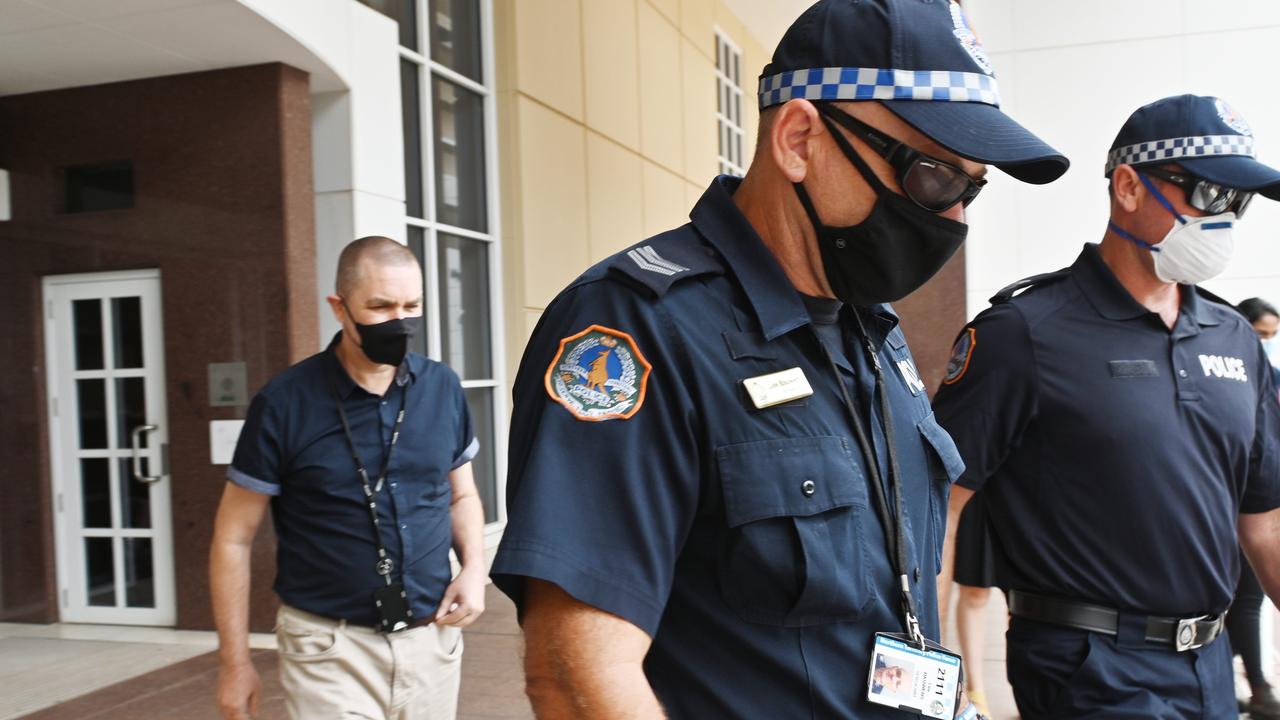
Sergeant Bauwens said on one occasion when other community members were helping an offender avoid police, the unit “disguised ourselves as mine workers and co-ordinated the arrest”.
He said the group’s “overt” work involved “high visibility patrols, letting people know we were there, working with the community, doorknocking”.
“The desired effect was either for the person to give themselves up, for the community to assist in (them) giving themselves up, or if the person would run,” he said.
“The desired result for us was if they ran because they tired themselves out very quickly … and they give up.”
Sergeant Bauwens said there were “no door kicking jobs”, saying “I knew that would be the demise of the section if it became labelled a mini (Territory Response Group)”.
Counsel assisting the Coroner Patrick Coleridge asked Sergeant Bauwens whether a text message Zachary Rolfe sent describing the IRT’s work as “cowboy stuff with no rules” fit with his understanding of it.
Sergeant Bauwens replied: “No definitely not, but I can probably put that into some kind of context”.
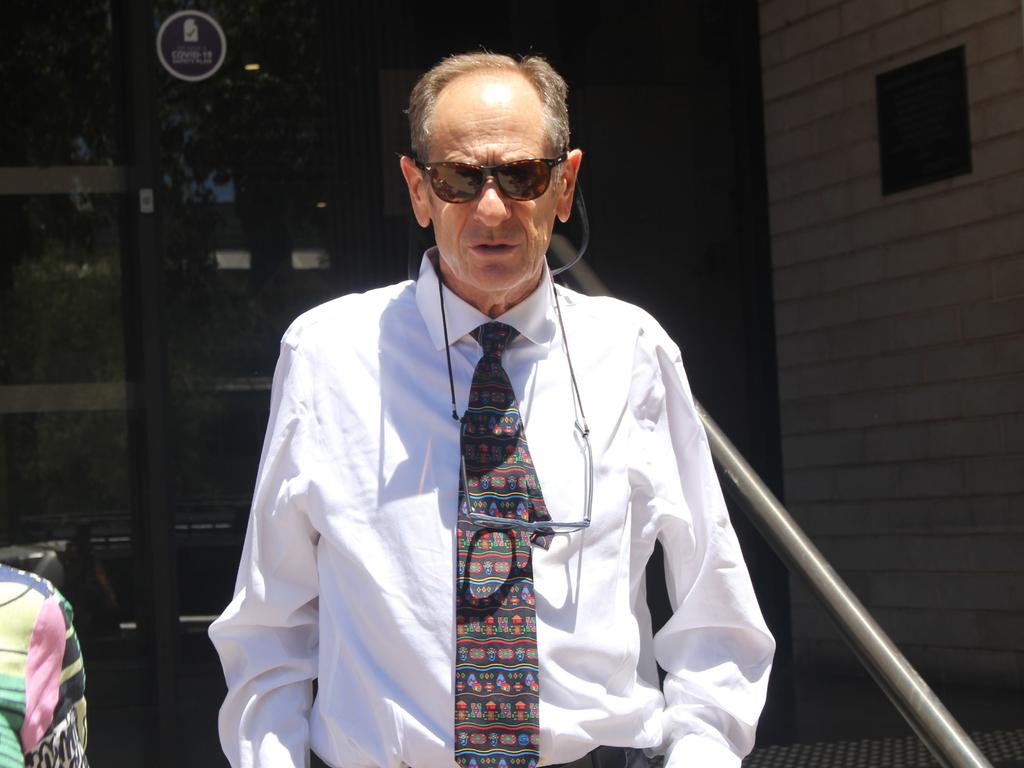
“I also come from, not as much as Zach, but a military background where everything’s formulated, you can’t do anything without being told,” he said.
“Coming from that environment to a police force is – one word is refreshing – because you’re allowed to make decisions without being told what to do every two seconds.
“I’m not a fan of the terminology, that’s for sure because it doesn’t represent what we are and what we were but I think he was just talking a bit of crap.”
Sergeant Bauwens denied having used racist terminology in the workplace but agreed there was “no excuse” for a text message to Mr Rolfe in which he described Aboriginal people as “bush c — ns”.
“I have no absolute memory or recollection of that comment whatsoever, it’s not something I say,” he said.
“I don't like the term, it’s not who I am but it’s there, I have to accept it but it’s completely foreign to me.”
The inquest continues.
Rolfe’s bid to stay mum over ‘potentially unlawful use of force, illegal drugs’
Zach Rolfe will seek to avoid answering questions that could implicate him in “potentially unlawful use of force, illegal drug use or fraudulent conduct” when he retakes the stand on Monday.
An inquest into the death of 19-year-old Warlpiri-Luritja man Kumanjayi Walker is due to resume in the Alice Springs Local Court on Thursday, with Sergeant Lee Bauwens due to give evidence.
Mr Rolfe, a former police officer who was acquitted on all charges after fatally shooting Mr Walker during a bungled arrest in Yuendumu in 2019, is then expected to return to the witness box on Monday.
The Supreme Court has previously ruled both men can be compelled to give evidence despite raising concerns it could incriminate them in disciplinary proceedings.
But in submissions filed with the Coroner’s court and released publicly late on Thursday, Mr Rolfe’s lawyers flagged that he will now make a claim of privilege against criminal self-incrimination regarding multiple use-of-force incidents.
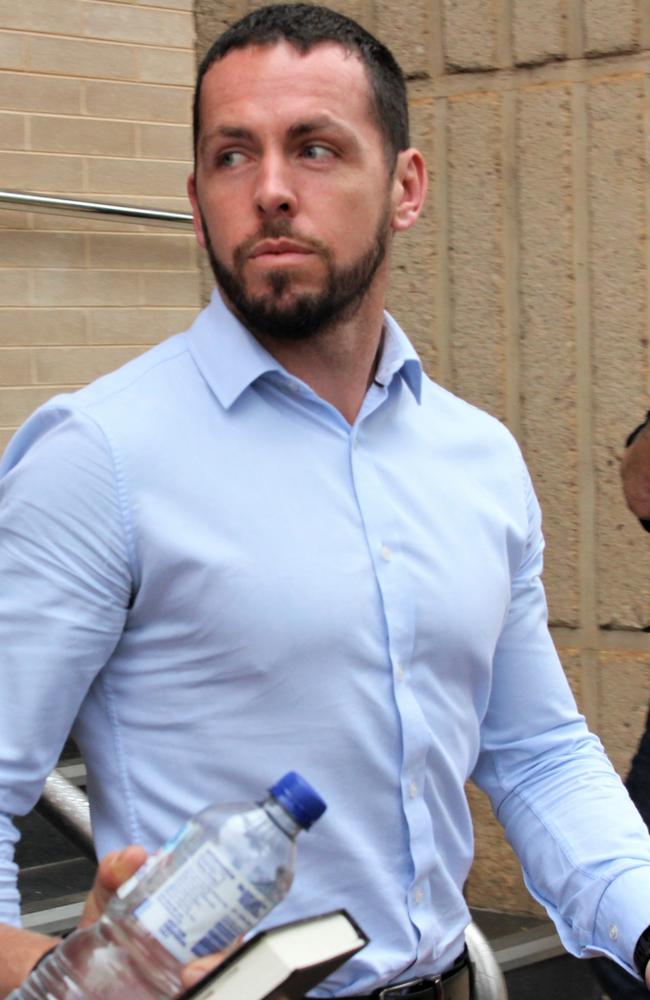
They say he will also object to answering questions about his application to join NT Police and text messages downloaded from his phone relating to “recreational drug use, illicit or prescription” and the “dissemination of body-worn video”.
They say the suggestion Mr Rolfe’s previous use of force could have any bearing on the inquiry into Mr Walker’s death is “absurd”, citing “the incredibly calm and dignified way” in which he engaged with Mr Walker in the lead up to his arrest.
“There is no evidence that could give rise to any logical correlation between a purported racial bias or predisposition to excessive force and the conduct of Mr Rolfe; that conduct having indisputably occurred within a space of seconds in response to what was an undeniable threat with a weapon,” the submissions read.
“Requiring Mr Rolfe to be compelled to answer questions in the face of proper claims of privilege against self-incrimination in relation to issues that are so devoid of connection with the death of Kumanjayi Walker, would, when looked at in the context of what is known occurred in the lead up to Kumanjayi Walker’s death, be akin to the approach of a roving Royal Commission.”
Lawyers for NT Police submitted that “no criminal complaints have been received to date and the NTPF does not intend to file criminal charges against Mr Rolfe” in relation to incidents in which findings of excessive force had been made.
The force’s submissions also say there is “no risk” of charges being laid in relation to drug use or disclosure of confidential information, citing statutory limitations periods.
Counsel assisting urged Coroner Elisabeth Armitage “to decline, in the exercise of her discretion, to determine the objections until they are made”.
- The bullet point summary was created with the assistance of AI technology (PaLM2) then edited and approved for publication by an editor.
More Coverage
Originally published as Kumanjayi Walker inquest: Rolfe’s ‘smashing’ text to mum described ‘positive experience’, sergeant says









